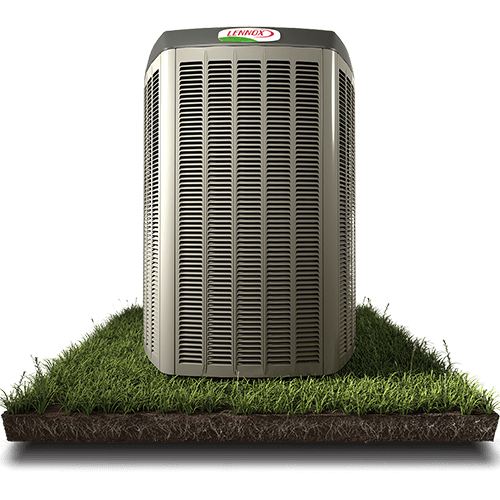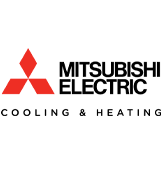
When you look at an air conditioner, you might notice that its specifications mention BTUs. BTUs are a commonly used metric that helps people determine whether or not an air conditioner is right for them. Understanding what BTUs mean and how they work will help you stay informed.
What Does BTU Stand for?
BTU stands for British Thermal Unit. This is a type of unit used to measure heat and thermal energy, so it has all sorts of interesting applications. A BTU is technically defined as the amount of heat needed to raise the temperature of a single pound of water by one degree Fahrenheit while at sea level. This makes BTUs a very useful technique for classifying an item’s ability to heat something. It tells you exactly the amount of thermal energy that item will be able to alter.
When discussing air conditioners, it is common to mention a BTU rating like 20,000. This rating is simply called BTU for short, but in reality, an air conditioner’s rating is measured in BTUs per hour. BTU per hour ratings are great for providing information about an air conditioner. However, the long numbers can be a little bulky, so many people prefer to refer to cooling capacity in tons instead. One ton is the same as 12,000 BTUs per hour.
Why Are BTUs Used for Air Conditioners?
If BTUs are mostly used for heat, why do they show up alongside air conditioning units? This happens because of the way air conditioners work. An air conditioner cools your home by removing heat from the air and dumping the excess heat outside. Since air conditioners are transferring heat, BTUs are still an excellent way of measuring a unit’s ability to perform.
An air conditioner’s BTU rating tells you how much heat your unit can remove from the home. Since less heat means more cold air, BTU essentially lets you know your machine’s output of cold air. A higher BTU rating means that an air conditioner is more powerful. When air flows through a high BTU device, more heat will be taken out of the air, and you will feel chillier air coming through the vent.
Often, people refer to a higher BTU device as a high-powered device. While it is true that more BTUs means more power to move heat, more BTU capacity does not necessarily mean a machine drains more power. It is important to remember that BTUs only refer to thermal energy, not electrical power. Different devices have different energy efficiency levels, so two air conditioners with the same BTU ratings might use different amounts of electricity. If you want to learn how much energy a machine is using, you will need to look at the amount of BTU per hour.
Is a Low BTU Machine Bad?
The BTU rating is so important because it helps you figure out whether an air conditioner is the right size for your home. If a unit’s BTU rating is too small for a home, the air conditioning unit is undersized. An air conditioner without enough BTUs can be a big problem. Your unit will run nonstop, but your home will still feel unpleasantly hot.
Though you might save a little money by purchasing a lower BTU unit, in the long run, it costs more. The problem with getting a low BTU air conditioner is that it puts a lot of wear and tear on your machine. The constant running will mean that your machine breaks down more often, and you will probably have to buy a new one sooner.
Are More BTUs Always a Good Thing?
When you are sitting in hot, sticky weather, the idea of an extremely high BTU rating definitely sounds appealing. However, this is not necessarily true. First of all, more BTUs mean more expenses. High BTU devices are generally pricier to purchase, and if they have a low-efficiency rating, high BTU air conditioners will be more expensive to run.
Furthermore, you need to pick the right amount of BTUs for your home size. Air conditioners perform best when they can run at a steady rate for a half-hour or so at a time. This gives the machine plenty of time to circulate air through the home, providing an evenly mixed blend of fresh, cool air. A high BTU machine in a small space will not be able to do this.
Your air conditioner unit is usually controlled by a thermostat that measures the temperature in your home. When you use a unit with an oversized BTU rating, it will blast a bunch of very chilly air into your home. The thermostat will then see its target goal has been reached, so it will shut off the air conditioner almost immediately. However, since the air conditioner did not run long enough, there will be hot pockets of air that quickly dilute your cold air and trigger the thermostat to click on again.
This short cycling effect requires your machine to repeatedly start up and get a bunch of parts moving quickly. That uses up more power and puts more wear and tear on your moving parts. Short cycling is also bad because it does not give your system enough time to remove humidity from the air. The higher humidity levels will make your house feel muggy and sticky all the time.
How Many BTUs Does Your Home Need?
Ultimately, the best BTU rating for you will depend on your overall cooling needs. You can roughly estimate your BTU rating by looking at the square footage of your house. On average, air conditioners need about 20 BTU for each square foot of space they will be cooling. So a small home of around 800 square feet might need as little as 16000 BTU while a large home of 4,000 square feet could need an 80,000 BTU unit. The typical central air conditioner for an average-sized home will be somewhere between 20,000 to 50,000 BTU.
However, you should keep in mind that these estimates are usually just based on a home with 8-foot ceilings. If you have extremely high ceilings, you might need more BTU to cool your home. Your home’s insulation ability also impacts the amount of BTU you need. If a lot of your air is leaking out through drafty doors, windows, or thin walls, you will need more BTU to cool your home. Having a lot of windows increases your BTU needs further because they let in hot sun rays.
If you have any questions about picking the right air conditioner for your home, do not hesitate to ask us. Polar Air & Heating, Inc. is always happy to assist Las Vegas residents with finding the best air conditioners for their homes. Our highly talented technicians can also assist you with a variety of other repairs and maintenance, and we work on both residential and commercial systems.
Give us a call now to learn more about our services






















